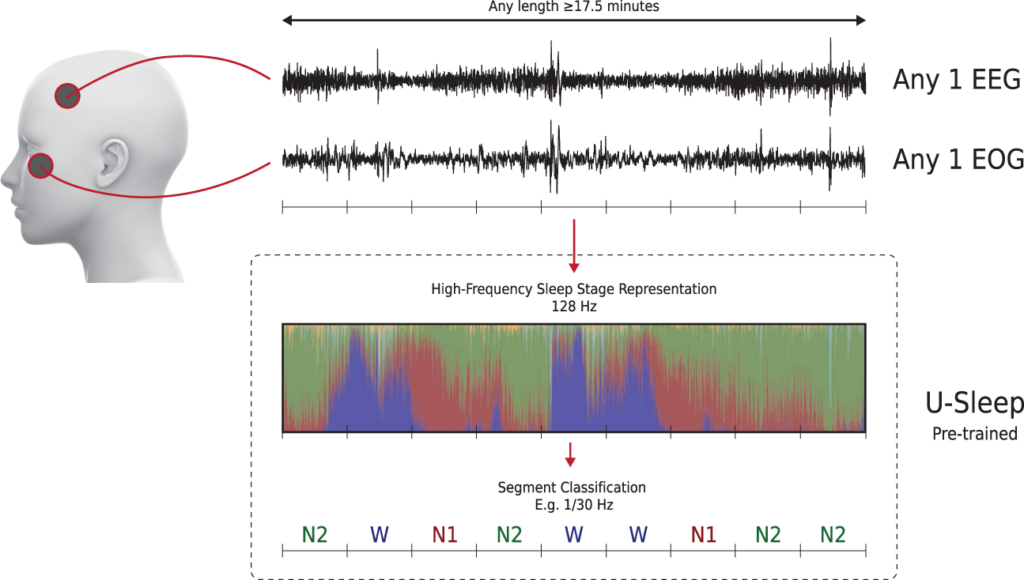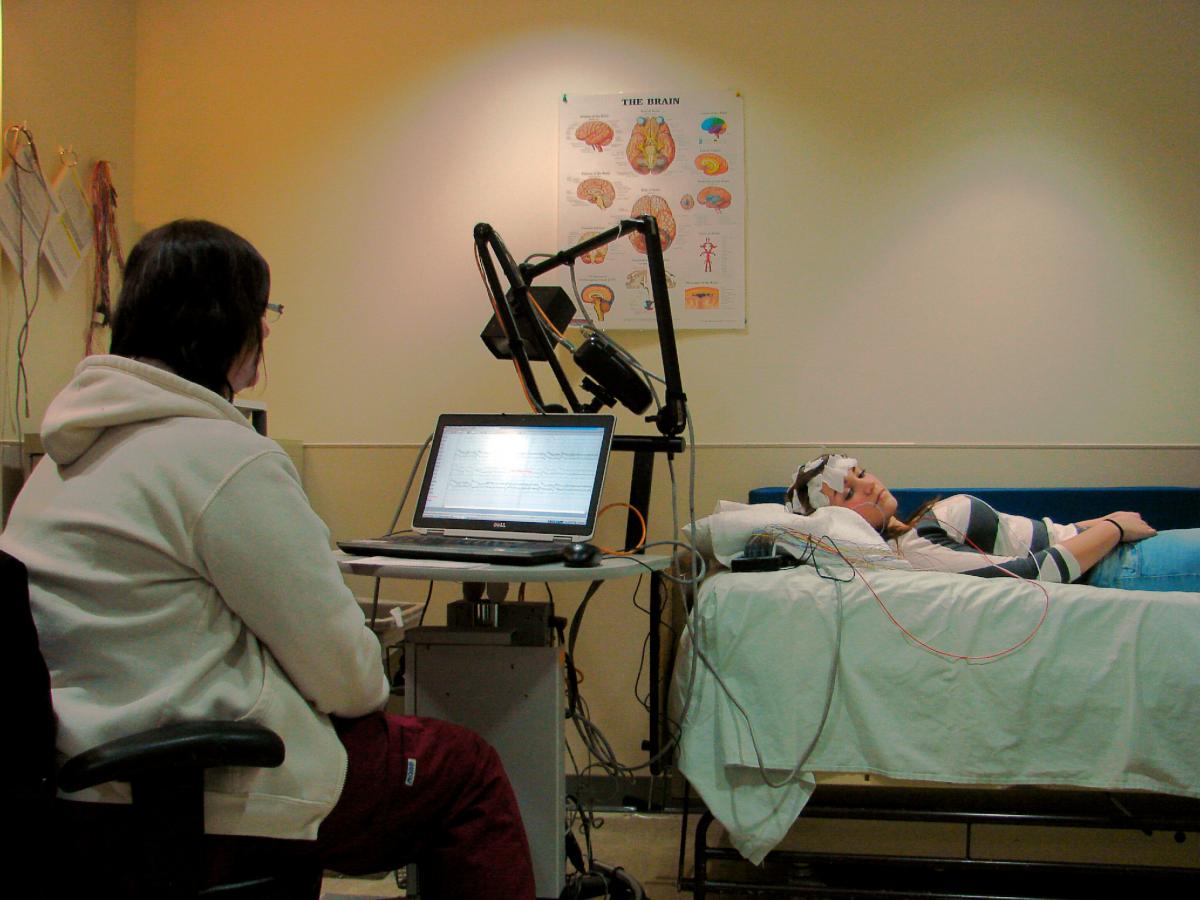A sleep study, also known as a polysomnography, is a test conducted to evaluate the quality of your sleep and diagnose any potential sleep disorders. The results of this assessment are documented in a sleep study report, which provides valuable insights into your sleep patterns, stages, and overall sleep quality. Understanding the information presented in this report is crucial in comprehending your sleep health and taking appropriate measures to improve it.
Interpreting a sleep study report can be a complex task, but breaking it down into manageable sections can help you grasp the information more effectively. One crucial aspect of the report is the analysis of your sleep architecture, which includes details about the time spent in different sleep stages, transitions between stages, and any abnormalities detected during the study.
Understanding the Importance of a Sleep Study
Sleep plays a vital role in maintaining overall health and well-being. It is during sleep that our bodies repair and rejuvenate, and our brains consolidate memories and process emotions. A proper sleep study allows healthcare professionals to assess any disruptions or abnormalities in your sleep, assisting in the identification of potential sleep disorders or conditions that may be adversely affecting your sleep quality. Learn more about Sleep Study Sunshine Coast: Assessing Sleep Patterns on the Sunshine Coast visit at https://lowcarbadvisor.com/sleep-study-sunshine-coast-assessing-sleep-patterns-on-the-sunshine-coast/.
The Role of Sleep in Overall Health
Sleep is not merely a state of rest, but a complex series of neurological and physiological processes that contribute to our physical health and mental well-being. It is during sleep that our bodies regulate hormone production, repair damaged cells, and strengthen the immune system. Additionally, proper sleep is essential for cognitive functions such as memory consolidation and problem-solving abilities.
Moreover, sleep is intricately linked to our emotional well-being. Research has shown that inadequate sleep can lead to increased irritability, mood swings, and difficulty in managing stress. This highlights the importance of addressing any sleep disturbances through a comprehensive sleep study to ensure not just physical health but also emotional stability.
Why a Sleep Study is Conducted
A sleep study is conducted to evaluate your sleep patterns, diagnose sleep disorders, and determine the appropriate course of treatment. Sleep disorders can have a significant impact on your overall health, leading to chronic fatigue, mood disturbances, impaired concentration, and even increased risk of certain medical conditions such as cardiovascular diseases.
Furthermore, a sleep study can provide valuable insights into your sleep architecture, including the different stages of sleep such as REM (rapid eye movement) and non-REM sleep. Understanding these patterns can help healthcare providers tailor interventions to improve the quality and efficiency of your sleep, ultimately enhancing your overall health and quality of life. Learn more about quality of life visit at https://www.ncbi.nlm.nih.gov/books/NBK536962/.

Deciphering Your Sleep Study Report
Upon completion of your sleep study, you will receive a detailed sleep study report that provides an in-depth analysis of your sleep patterns and potential sleep disorders. To make the most of this report, it is essential to understand the terminologies and information presented in it.
Common Terms Used in Sleep Study Reports
Sleep study reports often contain various terms that may seem unfamiliar. Familiarizing yourself with terms such as sleep efficiency, respiratory events, and arousal index can help you understand the findings of your report better and discuss them with your healthcare provider.
Moreover, the report may include information about your oxygen levels during sleep, body position changes, and any movements or behaviors observed throughout the night. These details can offer valuable insights into factors that may be affecting the quality of your sleep and overall health.
Understanding Sleep Stages and Cycles
Our sleep is composed of distinct stages and cycles, each serving a specific purpose in the sleep process. The sleep study report will provide information about the duration and distribution of these stages, such as rapid eye movement (REM) sleep, non-rapid eye movement (NREM) sleep, and the different NREM stages. Understanding these stages and their significance can shed light on potential disruptions in your sleep patterns.
Furthermore, the report may highlight any sleep-related breathing disorders, such as sleep apnea, periodic limb movements, or other conditions that could be impacting the quality of your sleep. By delving into these details with your healthcare provider, you can work towards addressing any issues identified in the report and improving your overall sleep health.
Interpreting Sleep Disorders from Your Report
One of the primary purposes of a sleep study is to diagnose sleep disorders. By carefully analyzing your sleep study report, healthcare professionals can identify specific sleep disorders that may be impacting your sleep quality and overall well-being.
When it comes to interpreting your sleep study report, there are several key sleep disorders that healthcare professionals look for. These disorders can have a significant impact on your daily life and overall health if left untreated. Let’s take a closer look at some of the most common sleep disorders that your report may help identify.
Identifying Sleep Apnea
Sleep apnea is a common sleep disorder characterized by pauses in breathing or shallow breathing during sleep. Your sleep study report may indicate the presence of sleep apnea by evaluating factors such as the apnea-hypopnea index (AHI) or the oxygen saturation levels during sleep. Identifying sleep apnea is crucial, as it can increase the risk of cardiovascular diseases and other complications if left untreated.
During a sleep study, healthcare professionals carefully monitor your breathing patterns and oxygen levels. They analyze the data collected throughout the night to determine if you have sleep apnea and, if so, the severity of the condition. This information is essential in developing an effective treatment plan tailored to your specific needs. Learn more about oxygen levels click here.
Recognizing Insomnia
Insomnia refers to the difficulty in falling asleep, staying asleep, or experiencing non-restorative sleep. Your sleep study report may provide insights into potential causes of insomnia, such as heightened arousal levels, frequent awakenings, or prolonged sleep latency. Recognizing and understanding the factors contributing to insomnia can help guide the development of an effective treatment plan.
During a sleep study, healthcare professionals not only monitor your sleep patterns but also assess various physiological and psychological factors that may contribute to insomnia. They analyze data such as brainwave activity, heart rate, and muscle tension to gain a comprehensive understanding of your sleep difficulties. This comprehensive approach allows them to develop personalized strategies to improve your sleep quality and overall well-being.
Uncovering Restless Leg Syndrome
Restless Leg Syndrome (RLS) is characterized by an irresistible urge to move one’s legs, often accompanied by uncomfortable sensations. Your sleep study report may identify leg movements during sleep, periodic limb movement index (PLMI), or other relevant indicators to assess the presence of RLS. Identifying RLS can aid in managing its symptoms and improving sleep quality.
During a sleep study, healthcare professionals pay close attention to any leg movements that occur during sleep. They use specialized equipment to monitor and record these movements, allowing them to determine if you have RLS. Understanding the presence of RLS is crucial as it can significantly impact your sleep quality and overall well-being. With this knowledge, healthcare professionals can develop personalized treatment plans to alleviate the symptoms of RLS and improve your sleep.
The Connection Between Sleep Quality and Lifestyle Factors
Your sleep study report can provide valuable insights into the impact of lifestyle factors on your sleep quality. Understanding this connection can empower you to make informed choices and adopt healthier habits.
When it comes to sleep quality, lifestyle factors play a crucial role. Factors such as stress levels, daily routines, and even bedroom environment can all influence how well you sleep. By analyzing these factors in conjunction with your sleep study report, you can gain a comprehensive understanding of what may be affecting your sleep patterns.

The Impact of Diet on Sleep
What you eat can significantly influence your sleep quality. Certain foods, such as those high in caffeine or sugar, may disrupt your sleep patterns. Your sleep study report may indicate how dietary choices could be affecting your sleep, allowing you to make necessary adjustments for improved sleep quality.
In addition to specific foods, the timing of your meals can also impact your sleep. Eating heavy or spicy meals too close to bedtime can lead to indigestion and discomfort, making it harder to fall asleep. By maintaining a balanced diet and being mindful of when you eat, you can support better sleep quality.
Exercise and Sleep Quality
Regular physical activity has been shown to enhance sleep quality and promote overall sleep health. Your sleep study report may highlight the impact of exercise, or lack thereof, on your sleep patterns. By incorporating exercise into your routine, you can optimize your sleep quality and enjoy its numerous benefits.
Exercise not only helps regulate your sleep-wake cycle but also reduces symptoms of insomnia and sleep apnea. Whether it’s aerobic exercises like running or cycling, or relaxation-focused activities like yoga, finding a physical activity that suits your preferences can greatly contribute to better sleep quality.
Next Steps After Receiving Your Sleep Study Report
After receiving your sleep study report, it is crucial to take proactive steps towards improving your sleep quality. Some important steps to consider are:
Discussing Your Report with a Sleep Specialist
Reach out to a sleep specialist or healthcare provider to discuss the findings of your sleep study report in detail. They can provide specific recommendations tailored to your needs and address any questions or concerns you may have.
Lifestyle Changes for Improved Sleep
Implementing lifestyle changes can significantly improve your sleep quality. Your sleep study report may highlight factors such as bedroom environment, sleep hygiene practices, or stress management techniques that can be modified to promote better sleep.
Potential Treatments for Sleep Disorders
If a sleep disorder is identified in your sleep study report, your healthcare provider may suggest various treatment options. These may include continuous positive airway pressure (CPAP) therapy for sleep apnea, cognitive-behavioral therapy for insomnia, or medication alternatives. Understanding the available treatments can help you make informed decisions regarding your sleep health.
Additionally, it is important to note that there are other factors that can impact your sleep quality. For example, certain medications, such as antidepressants or stimulants, may interfere with your ability to fall asleep or stay asleep throughout the night. It is essential to discuss any medications you are taking with your healthcare provider to determine if they may be affecting your sleep.
Furthermore, your sleep study report may reveal information about your sleep architecture, which refers to the different stages of sleep you experience throughout the night. Understanding your sleep architecture can provide insights into the quality of your sleep and help identify any abnormalities or disruptions that may be impacting your overall sleep health.
By interpreting and understanding your sleep study report, you can gain valuable insights into your sleep health and take necessary steps towards improving your overall well-being. Remember, a good night’s sleep is essential for a healthy and fulfi

